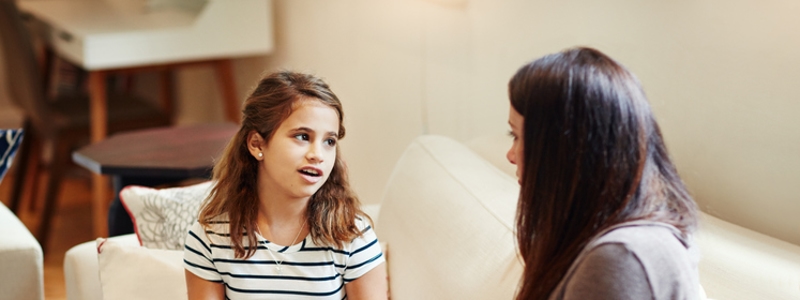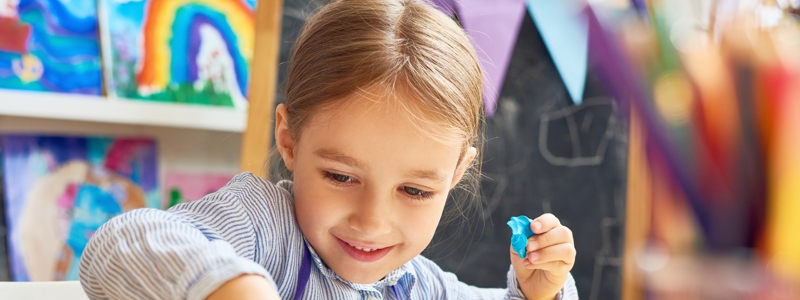Puberty can be a challenging time for teenagers, as not only is everything changing physically but emotionally too. For parents, we know it can be stressful knowing how to navigate through it with your children as it is often tricky to know the right way to support them through their bodily changes, as well as trying to understand how they’re feeling. This guide to puberty will not only help prepare you for the changes to expect, but will arm you with lots of useful information that will help answer your teens questions and give you a head start in handling puberty like a pro.
When Is Puberty Expected To Start?
Generally, puberty is expected to begin at any point from the ages of 8 to 14, with the process usually taking around 4 years. It’s important to remember everybody is different and there’s a wide range of what’s considered normal, so don’t worry if your child reaches puberty before their friends.
What Physical Changes Are Expected During Puberty?
Puberty starts when changes in your child’s brain cause sex hormones to be released in the ovaries or testes. The changes that happen during puberty are physical, sexual, social and emotional. Regardless of gender, most teens will experience physical changes such as oily skin and hair, spots, increased body odour and a growth spurt.
What To Expect Socially And Emotionally
It’s important to remember that puberty can be a really difficult time for children, as they’re not only coping with all the changes happening to their body, they are probably feeling self-conscious and worried that everything that’s happening to them is normal. This can often lead to emotional and social changes, so here’s some things to keep an eye out for.
Mood Changes: Mood changes and energy level variations are ordinary parts of puberty, as are swings between feeling independent and wanting parental support. For example, your teen may feel self-conscious one day, to feeling ‘bulletproof’ the next. Expect unexplained mood swings, low self-esteem and unnecessary or rude outbreaks- just be patient, they won’t last forever.
Independence: It’s normal that during puberty your child will find a new sense of independence and will want to do more things on their own such as getting themselves to and from school or finding a part-time job for extra pocket money. They may also start to explore their sexuality and begin developing romantic relationships.
Privacy: Privacy and personal space will probably become very important to your teenage son or daughter. Be accepting of their need for privacy, and remember to respect boundaries such as their bedroom. Try to knock before going in and avoid tidying up or going through their personal belongings.
How Can I Support My Child During Puberty?
Communication: One of the best ways to support your child during puberty is to make time to discuss growing up and puberty openly and honestly. Even though it may feel embarrassing to them at first, knowing they can come and talk to you if they need reassurance or support is crucial. Take an open and relaxed approach to chatting with your teen, and try and talk about the changes they may be going through, what they can expect and let them know everybody develops at their own pace.
Reassurance: It’s also important to reassure your child during puberty, as no doubt they will be comparing their body to their friends, and may feel worried about their own development. The best thing you can do is show compassion for the changes they’re experiencing and explain bodies come in all shapes and sizes.
Listen: Finally, just listen. Making the time to listen to their worries and concerns, whether that’s in the car on the way into school or while you’re making dinner- often teens will open up at the strangest times. It’s also a good idea to do your own research so you can answer any questions they may ask you.
Provide Helpful Advice Or Tools: There may be a time when you need to explain to your daughter how to use sanitary products, show your son how to shave or help deal with acne or oily hair- so try to be as prepared as you can be for this. It’s also a good idea to have a casual chat about personal hygiene and gently ask your son or daughter if they need anything like shaving equipment, face wash or deodorant. It’s important to provide the tools your children need so they are able to look after themselves and can manage puberty their way.
Provide Other Resources: It’s not always easy for children to talk to parents about the changes happening, so it’s a good idea to provide some other resources where they can find out specific information about puberty or answers to their questions. ChildLine’s website has plenty of useful information about puberty and is sure to provide the answers to specific questions your son or daughter may have. ChildLine also offer free and confidential advice on its telephone helpline, which can be reached on 0800 1111. They even have a puberty message board- one for boys and one for girls, where they can see what other young people are asking about or ask questions themselves.
Puberty Resources For Parents
- The Royal College of Psychiatrists website gives advice for parents on what to expect when children hit puberty.
- The FPA have a helpful range of online leaflets that give advice on talking to children about growing up, sex and relationships.




